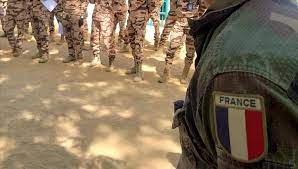French president Emmanuel Macron officially announced in November 2022, the demise of Operation Barkhane.
French forces in the Sahel
This is what the French military presence in this region of Africa bedeviled by a jihadist insurgency should now be called.
According to General Bruno Baratz, commander of the new operation that replaces Barkhane, “there is no longer a French operation in the Sahel.”
The French officer, who was answering questions from Radio France International (RFI), insisted on the new concept of “not conducting operations at our level, but rather coming to bring capabilities so that African armies can carry out their own operations.”
“Today, our assistance starts first from the partner need,” he said, noting that this new philosophy includes the training of “the minds of our soldiers.”
“Many of our units have been in Mali and have been in Barkhane. However, what French forces are doing today in Niger and Chad has nothing to do with the spirit.”
While the presence of the French army in Niger has been validated by Niamey, through a law passed in April 2022, while the last contingent of French soldiers left Mali in August of the same year, NGOs in France are protesting against this new format.
For the Catholic Committee against Hunger and for Development (CCFD-Terre Solidaire), this redeployment suffers from a lack of transparency and parliamentary consultation.
“Serval was transformed into Barkhane without a vote, even though its scope of intervention had expanded and its objectives diversified,” notes Robin Guitard, spokesmaon for CCFD-Terre Solidaire.
According to Guitard, “the French authorities seem willing to maintain 2,500 soldiers in an external theater without specifying the status under which they operate.
The same concern was expressed by ‘Tournons La Page’, an international citizen’s movement that brings together more than 250 organizations and whose main mission is to promote democratic change in Africa.
Its spokesman, Mathieu Pourchier, believes that “the acceptance of the policy conducted by France can only be done if it is subject to a minimum of consultation and public debate,” noting that the ten years spent fighting jihadist groups have ended in failure.
Barkhane withdrew from Mali in a context of diplomatic tension between Paris and Bamako.
The new Malian authorities resulting from the “rectification” of the transition following the coup of August 2020 have reproached France for having abandoned Mali “in mid-air” and have drawn closer to Moscow, resorting, according to Western chancelleries, to mercenaries from the paramilitary group Wagner, even though Bamako indicates that these are “Russian instructors.”
AC/fss/abj/APA


